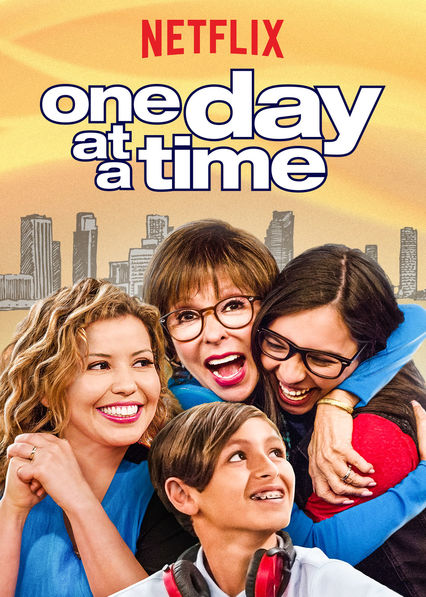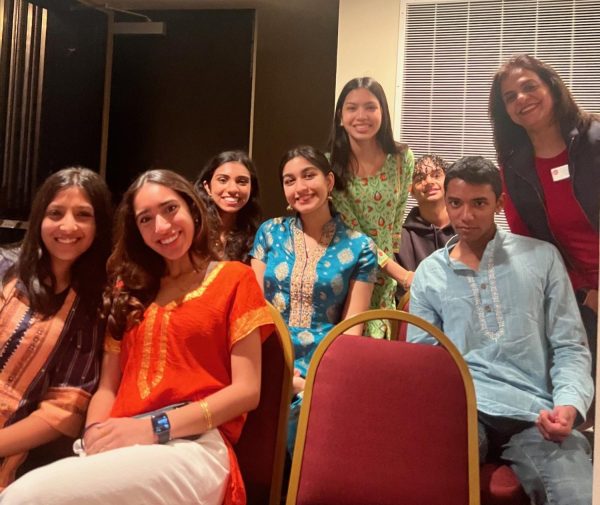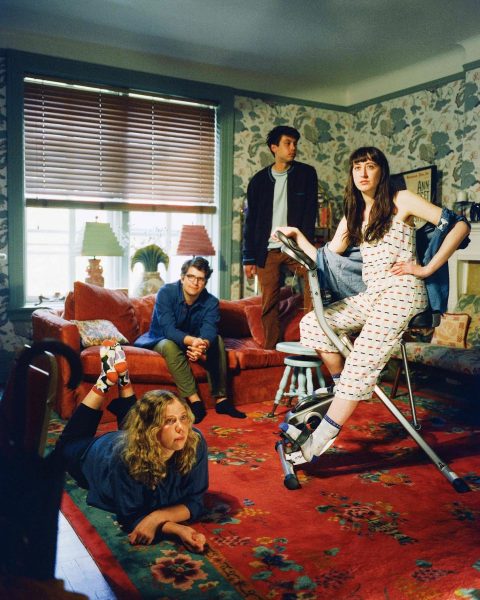Under Review: “One Day at a Time”

A Netflix original show based on a 1975 sitcom, “One Day at a Time” tells the story of the Cuban-American Alvarez family.
February 21, 2017
One Day at a Time is a sitcom for the new millennium.
Already one season in, the Netflix original show is based on the 1975 sitcom of the same name and a similar plotline — a divorced mother raising two teenage daughters on her own. The 2017 version revolves around the Cuban-American Alvarez family — Penelope, a single mom and Army vet; Elena, the strong-willed 14-year old activist; Alex, a fast-talking middle schooler; and Lydia, Penelope’s mother and the family matriarch.
On surface level, the show appears to be much like your typical, family-based multi-camera sitcom: mother-daughter fights, generational differences, trials and tribulations in love and life. And that’s part of what makes this show so refreshing. One Day at a Time rises to the occasion in a world where Latin people are so rarely represented as multidimensional characters. Episode eight, “One Lie at a Time,” deals with Elena’s first boyfriend and how the rest of her family reacts to the boy. Just like what would happen on any other show.
Yet the show does not gloss over the important cultural values that the Alvarez’s hold. Lydia has a thick accent and regularly dips into Spanish in order to get her message across. One of the main issues of this first season is Elena’s decision whether or not to have a quinceañera, and how she must reconcile her modern, liberal values with the traditions that matter to her family. The show presents these facets of their life in a compelling and relatable way. You don’t have to be of Latin heritage to “get” the jokes.
As a Mexican-American, I very rarely see someone who looks like me on television or in movies. Most frequently, Latin Americans are relegated to roles as drug runners or maids. And when they do get leading roles, their Latin identity overshadows the rest of their character. They become stereotypes — the hot head, the lover, et cetera.
In One Day at a Time, I finally got to see my coming-of-age story.
Furthermore, the show deals with important social issues including illegal immigration and LGBT+ issues without coming off as overbearing or heavy-handed. What’s even better is that people’s differences are not the butt of the joke. In today’s polarized political climate, watching a show where people can disagree and still get along warms my heart and reminds me to look for the good in people.
Shakespeare once posited that the purpose of art is to hold a mirror up to nature. One Day at a Time presents the issues and the people that America is becoming, and that is a beautiful thing indeed.























